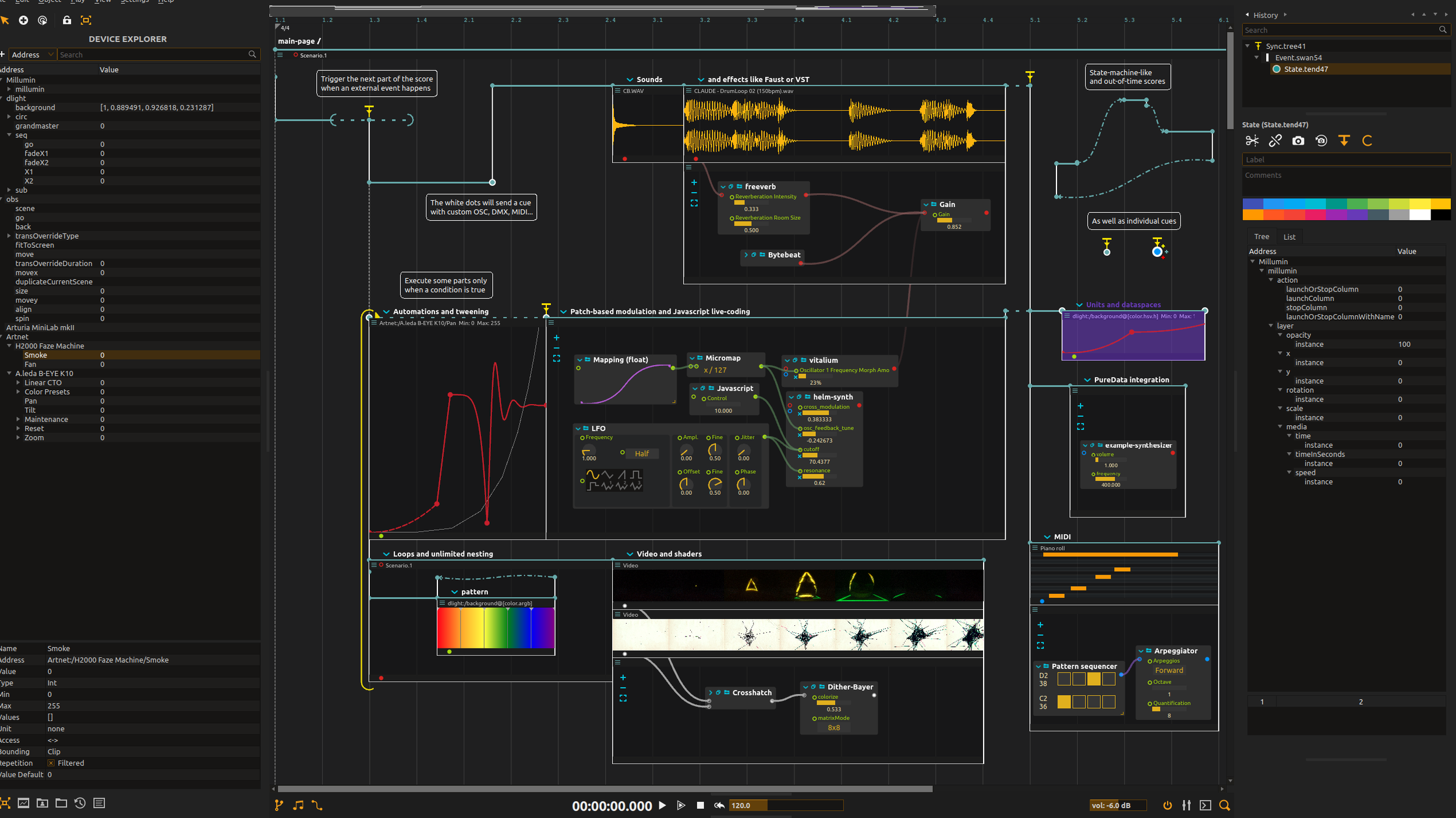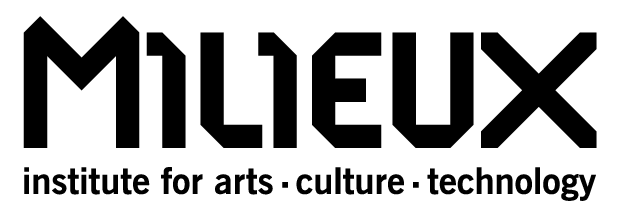
- This event has passed.
Workshop Ossia by Jean-Michaël Celerier
2023-03-02 | 17:00 - 20:00

This workshop will give an overview and teach the participants how to use the free, open-source, cross-platform software ossia score, starting from the ground up, and with the goal to enable them to create installation work, displays, interactive music. The workshop will be given by the software’s principal author, Concordia postdoc Jean-Michaël Celerier.
Dubbed “interactive sequencer for the intermedia arts”, ossia score is a system which combines both the non-linear time-lines and the data-flow paradigms to allow artists to create rich evolving multimedia artworks, musical pieces, museum installations, etc. At its core a sequencer with support for many communication protocols such as OSC, Web Sockets, DMX, MIDI or serial protocols, it supports real-time audio and video pipeline, live-coding for Javascript, GLSL, C++, support for tempo, musical metrics, hierarchical polyrythms, distributed and collaborative edition and execution and interactive & looping features inits timeline, along with an expanding set of interactive processes and library of effects and presets. The workshops will also cover how one can create artworks that leverage for instance embedded platforms (Raspberry Pi, Arduino) or web pages. Learn more about the software here.
PLEASE REGISTER BY CONFIRMING YOUR PARTICIPATION AT: PRODUCTION.HEXAGRAM@GMAIL.COM
WORKSHOP REQUIREMENTS
– Users must bring their own computers and check beforehand that the latest version of ossia score runs on their machine. The software is free and available for recent versions of Windows, macOS and Linux. Download it here.
– Be motivated and ready to learn a completely new way to work on media art installations / performances / shows !
TARGET AUDIENCE
Media artists who use software such as Max/MSP, PureData, Unity3D, TouchDesigner, etc. and are interested in discovering a new free software system which allows to create interactive timelines for their works and learn how to introduce more time-based elements in media artworks.
PRESENTER BIOGRAPHY
Jean-Michaël Celerier, born in France in 1992, is interested in art, code, computer music and interactive show control. He studied software engineering, computer science and multimedia technologies at Bordeaux, and obtained his doctorate on the topic of authoring temporal media in 2018. He develops and maintains a range of free and open-source software used for creative coding and intermedia art. Most of his work is centered on the ossia platform forwhich he is the lead developer. He enjoys organizing events on programming and media art. He teaches all sorts of creative coding languages (PureData, Processing, OpenFrameworks,etc).
